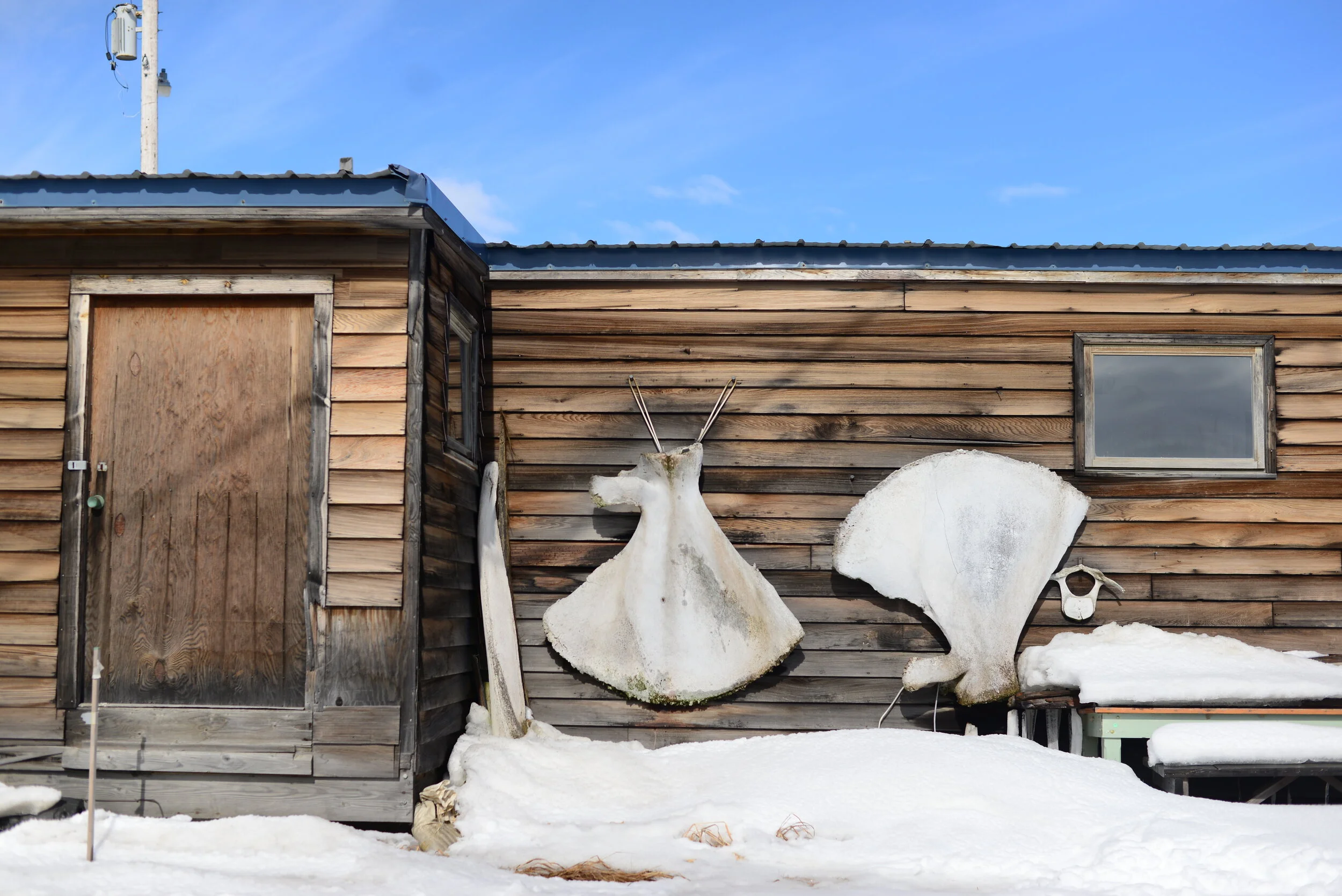Nuimaruaġiravut
Piviqaqtuq kiñapayaamun uqaluŋmiŋnik iḷisaġuktuanun.
We are learners who, recognizing the contributions of our celebrated language leaders, understand that the responsibility of reclaiming our language cannot and should not fall on the shoulders of a few. In order for our language to truly thrive, it will take efforts on all fronts, from a multitude of people.
There are many reasons why the language has not been passed on. As such, we acknowledge individual responsibility to meet our speakers where they are. Our language must once again be the language of the youth as well as the elders.
We think there needs to be more language in our lives, not less — more efforts, more programs, more practice and more discussion. We believe efforts by all learners should be encouraged, not diminished.
Piviqaqtuq kiñapayaamun uqaluŋmiŋnik iḷisaġuktuanun. Within the passage of one more generation, if we’re not raising new first-language speakers, all Iñupiat will be learners.
Iḷisaurriñikkun
We understand that you don’t have to know everything to teach, you just have to know something different than the person you are teaching. By embracing this broader definition of teacher, a generation can grow in learning together, hand in hand. Additionally, adult second-language learners understand acutely the journey of language acquisition, both the joys and the challenges.
We emphasize the importance of fostering a supportive environment which seeks to leave learning barriers at the door, such as the fear of criticism, ridicule, or getting something wrong. We appreciate that toddlers and youth are granted the grace to practice making the sounds of language and making mistakes; adult second language learners should be afforded the same privilege.
Uqautchit
We welcome and encourage all dialects.
We recognize that while we largely speak the same language across regions, our local "styles" differ. There is everything beautiful about a linguistic style that provides connection to the land and place you are from and who you and your people are. There is everything beautiful about wanting to learn and preserve the exact ways of your family and community.
However, we remember that our ancestors traveled across the regions for game and for trade, and that they knew and still know a variety of dialects and ways of speaking. We also know that the grammatical workings of the language are shared across dialectical and regional boundaries. Learning more and different ways to speak Iñupiaq does not diminish our ability to learn our own dialects — it is all additive.
We have the capacity to learn the styles of our own communities, and that of others. We urge mutual sharing of the ways of speaking in each of our communities. It will only make our experience of the language richer and stronger.
“Nikaitchuatguuq piraqtut.”

